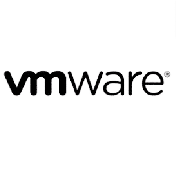Seminarinhalt
Cloud Data Specialists (Data Engineers und Data Analysts) spielen eine zentrale Rolle bei der Verarbeitung, Analyse und Visualisierung großer Datenmengen in der Azure-Cloud.
Data Engineers entwerfen, implementieren und optimieren Datenpipelines, die strukturierte und unstrukturierte Daten aus verschiedenen Quellen integrieren. Sie nutzen Technologien wie Azure Synapse Analytics und Microsoft Fabric, um skalierbare Datenlösungen zu entwickeln.
Data Analysts hingegen konzentrieren sich auf die Analyse und Interpretation dieser Daten, indem sie mit Tools wie Power BI interaktive Berichte und Dashboards erstellen, die datengetriebene Entscheidungen ermöglichen.
Microsoft Azure AI Engineers erstellen, verwalten und stellen KI-Lösungen bereit, die Azure Cognitive Services und Azure-Dienste nutzen. Zu ihren Aufgaben gehört es, an allen Phasen der Entwicklung von KI-Lösungen mitzuwirken – von der Anforderungsdefinition und dem Entwurf über die Entwicklung, die Bereitstellung, die Integration und die Wartung bis hin zur Leistungsoptimierung und Überwachung.
Data Engineers entwerfen, implementieren und optimieren Datenpipelines, die strukturierte und unstrukturierte Daten aus verschiedenen Quellen integrieren. Sie nutzen Technologien wie Azure Synapse Analytics und Microsoft Fabric, um skalierbare Datenlösungen zu entwickeln.
Data Analysts hingegen konzentrieren sich auf die Analyse und Interpretation dieser Daten, indem sie mit Tools wie Power BI interaktive Berichte und Dashboards erstellen, die datengetriebene Entscheidungen ermöglichen.
Microsoft Azure AI Engineers erstellen, verwalten und stellen KI-Lösungen bereit, die Azure Cognitive Services und Azure-Dienste nutzen. Zu ihren Aufgaben gehört es, an allen Phasen der Entwicklung von KI-Lösungen mitzuwirken – von der Anforderungsdefinition und dem Entwurf über die Entwicklung, die Bereitstellung, die Integration und die Wartung bis hin zur Leistungsoptimierung und Überwachung.
Programm
AZ-900 - Praxis+ Microsoft Azure Fundamentals
- Describe Core Azure Concepts
- Describe Core Azure Services
- Describe Core Solutions and Management Tools on Azure
- Describe general Security and Network Security Features
- Describe Identity, Governance, Privacy and Compliance Features
- Describe Azure Cost Management and Service Level Agreements
- Fundamental AI Concepts
- Fundamentals of machine learning
- Fundamentals of Azure AI Services
- Fundamentals of Computer Vision
- Fundamentals of facial Recognition
- Fundamentals of optical character recognition
- Fundamentals of text analysis with the language service
- Fundamentals of question answering with the launguage service
- Fundamentals of conversational language understanding
- Fundamentals of Azure AI speech
- Fundamentals of Azure AI Document Intelligence
- Fundamentals of konwledge mining with Azure cognitive search
- Fundamentals of generative AI
- Fundamentals of responsible generative AI
- Explore core data Concepts
- Explore data roles and services
- Explore fundamental relational data concepts
- Explore relational database services in Azure
- Explore Azure Storage for non-relational data
- Explore Fundamentals of Azure Cosmos DB
- Explore fundamentals of large-scale analytics
- Explore fundamentals of real-time analytics
- Explore fundamentals of data visualization
- Implement a Data Analytics Solution with Azure Synapse Analytics
- Build data analytics solutions using Azure Synapse serverless SQL pools
- Perform data engineering with Azure Synapse Apache Spark Pools
- Work with Data Warehouses using Azure Synapse Analytics
- Transfer and transform data with Azure Synapse Analytics pipelines
- Ingest data with Microsoft Fabric
- Implement a Lakehouse with Microsoft Fabric
- Implement Real-Time Intelligence with Microsoft Fabric
- Implement a data warehouse with Microsoft Fabric
- Manage a Microsoft Fabric environment
- Get started with Microsoft data analytics
- Prepare data for analysis with Power BI
- Model data with Power BI
- Build Power BI visuals and reports
- Manage workspaces and datasets in Power BI
- Get started with Azure AI Services
- Create computer vision solutions with Azure AI Vison
- Develop natural language processing solutions with Azure AI Services
- Implement knowledge mining with Azure AI Search
- Develop solutions with Azure AI Document Intelligence
- Develop Generative AI solutions with Azure OpenAI Service
- DP-3012 - Implementierung einer Datenanalyselösung mit Azure Synapse Analytics
- DP-3011 - Implementierung einer Datenanalyselösung mit Azure Databricks
- DP-3014 - Implementierung einer Machine Learning-Lösung mit Azure Databircks
- DP-3007 - Trainieren und Bereitstellen eines Machine learning-Modells mit Azure Machine Learning
- AI-3002 - Erstellung intelligenter Dokumentlösungen mit Azure AI Document Intelligence
- AI-3003 - Implementierung einer NLP-Lösung mit Azure AI Services
- AI-3004 - Erstellung einer Vision-Lösung mit Azure AI Services
- AI-3016 - Entwicklung benutzerdefinierter Copilots mit Azure AI Studio
- Prinzipien und zugrundeliegende Theorie von Scrum
- Überblick über das Scrum Team
- Scrum Events
- Scrum Artefakte
- Die Rolle des Scrum Master
- Die Rolle des Product Owner
- Theorie-Input & Erfahrungslernen
- Vorbereitung auf die Zertifizierungen
Enthaltene Module
Wichtige Information
Dieser Lehrgang besteht aus folgenden Trainings:
- AZ-900 Praxis+ Microsoft Azure Fundamentals
- AI-900 Praxis+ Microsoft Azure AI Fundamentals
- DP-900 Praxis+ Implementing a Data Analytics Solution with Azure Synapse Analytics
- DP-3012 - Implementing a Data Analytics Solution with Azure Synapse Analytics
- DP-700T00 - Microsoft Fabric Data Engineer
- PL-300T00 - Microsoft Power BI Data Analyst
- AI-102T00 - Designing and Implementing a Microsoft Azure AI Solution
- AZAA - Azure analyse & evaluate
- AZKC - Azure AI & Copilot
- Scrum Foundation für Scrum Master und Product Owner


